TPG’s guide to getting started with points, miles and credit cards
Welcome to The Points Guy, your go-to source for all things travel, points, miles, credit cards and more.
If this is your first foray into the world of award travel, we know it can be an exciting mix of endless possibilities and an uneasy feeling of not knowing where to begin.
The good news: You came to the right place. We will help get you on your way to unlocking incredible travel experiences. Points and miles truly can save you a ton of money on travel expenses and make the impossible your reality.
Whether you’re dreaming of an overwater bungalow and first-class flights, or are looking for a way to visit your family during the holidays without breaking the bank, TPG is here to show you how to use points and miles to make that happen.
In this “getting started” guide, we’ll walk you through the basics of points, miles and rewards credit cards. We’ll point you in the right direction, covering everything from terms you need to know to inspiration for where points and miles can take you to how to earn and redeem points and miles. Buckle up as we take you on this journey showing you how this new way of traveling can change your life.
In This Post
What are points and miles?
If you’re new to the points and miles hobby, there are a few terms and brands you’ll want to familiarize yourself with as you dive into some of the basics. We have a full glossary you can bookmark, but here are some of the most common terms you’ll come across.
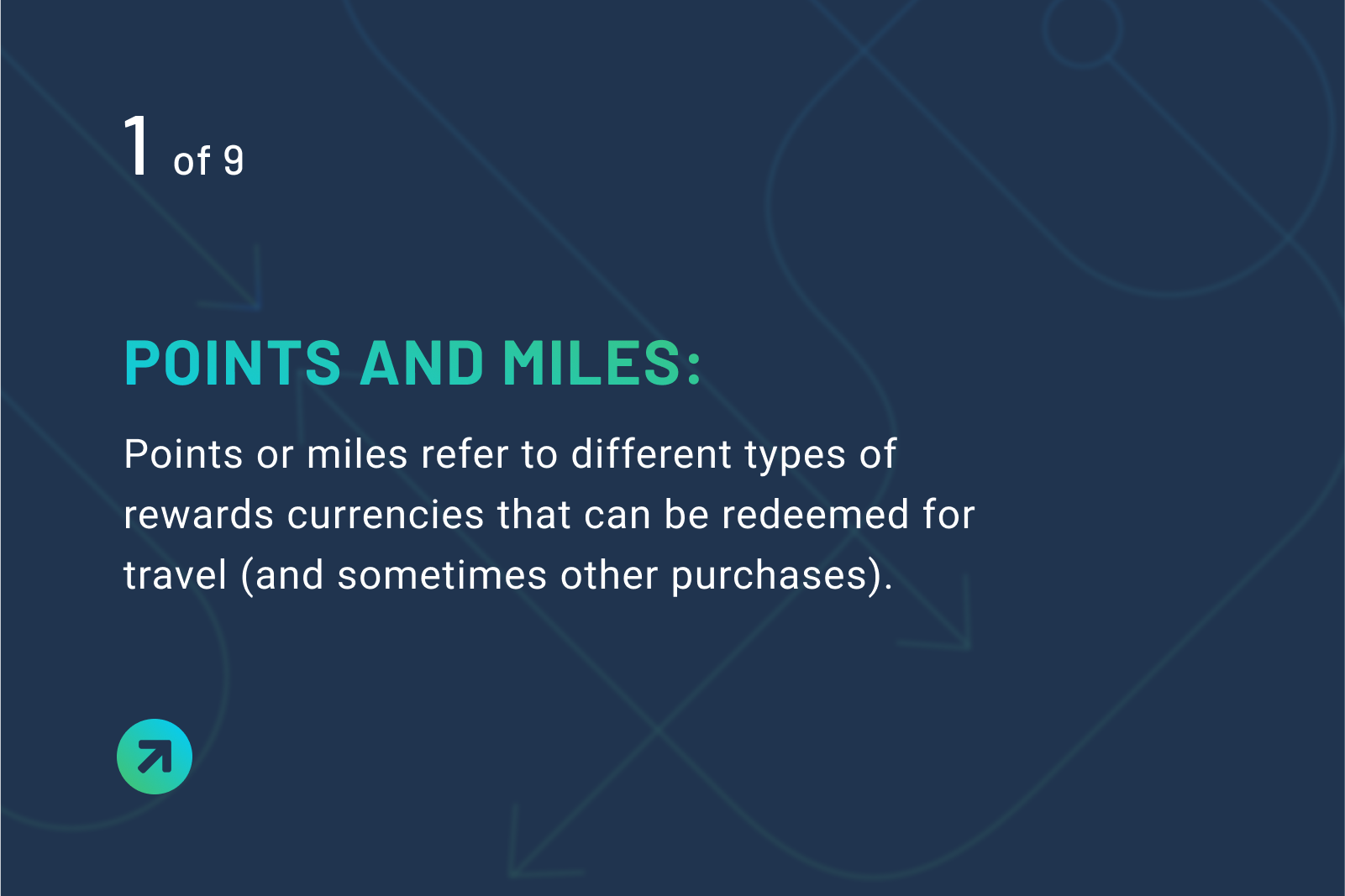
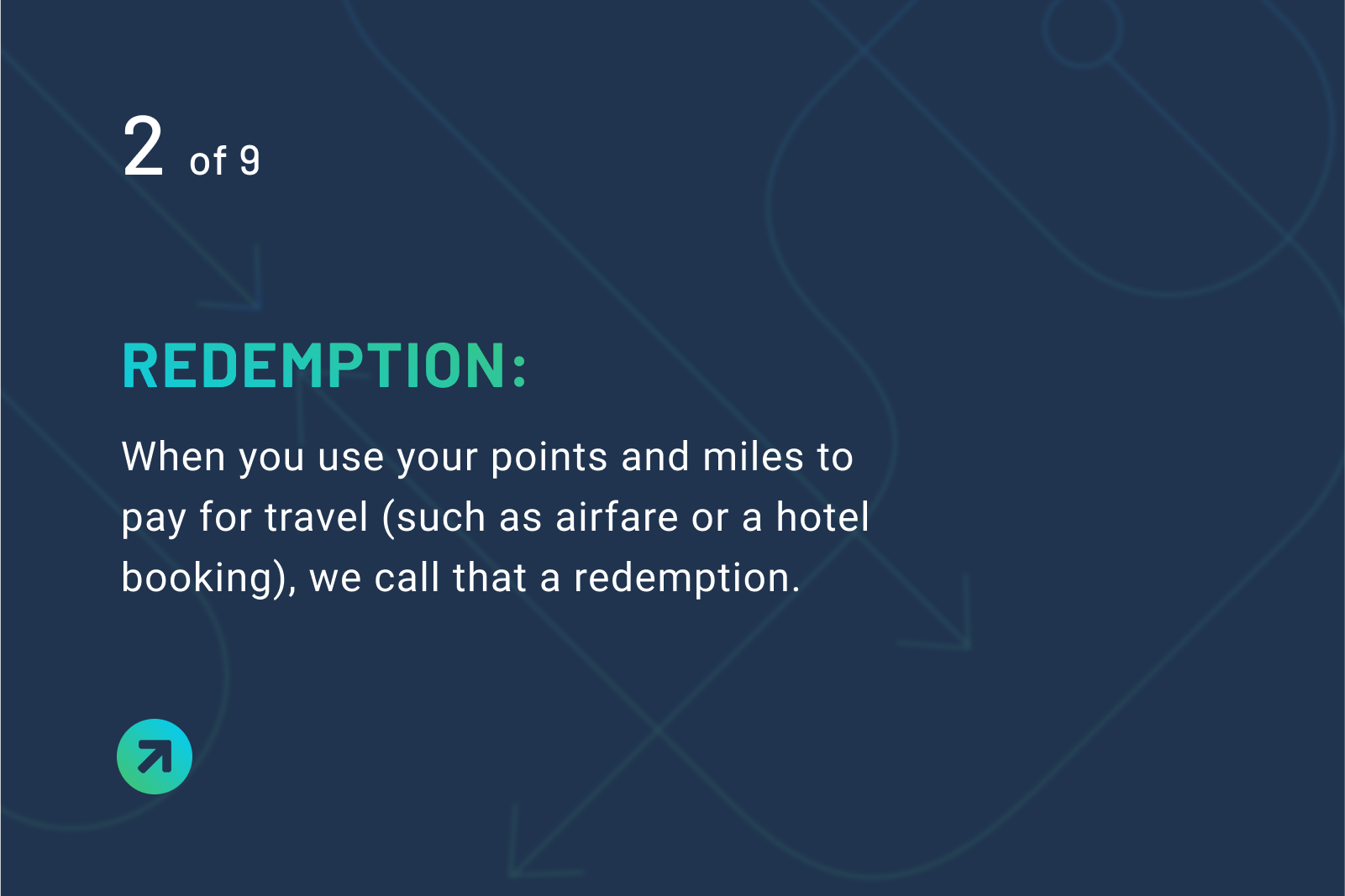

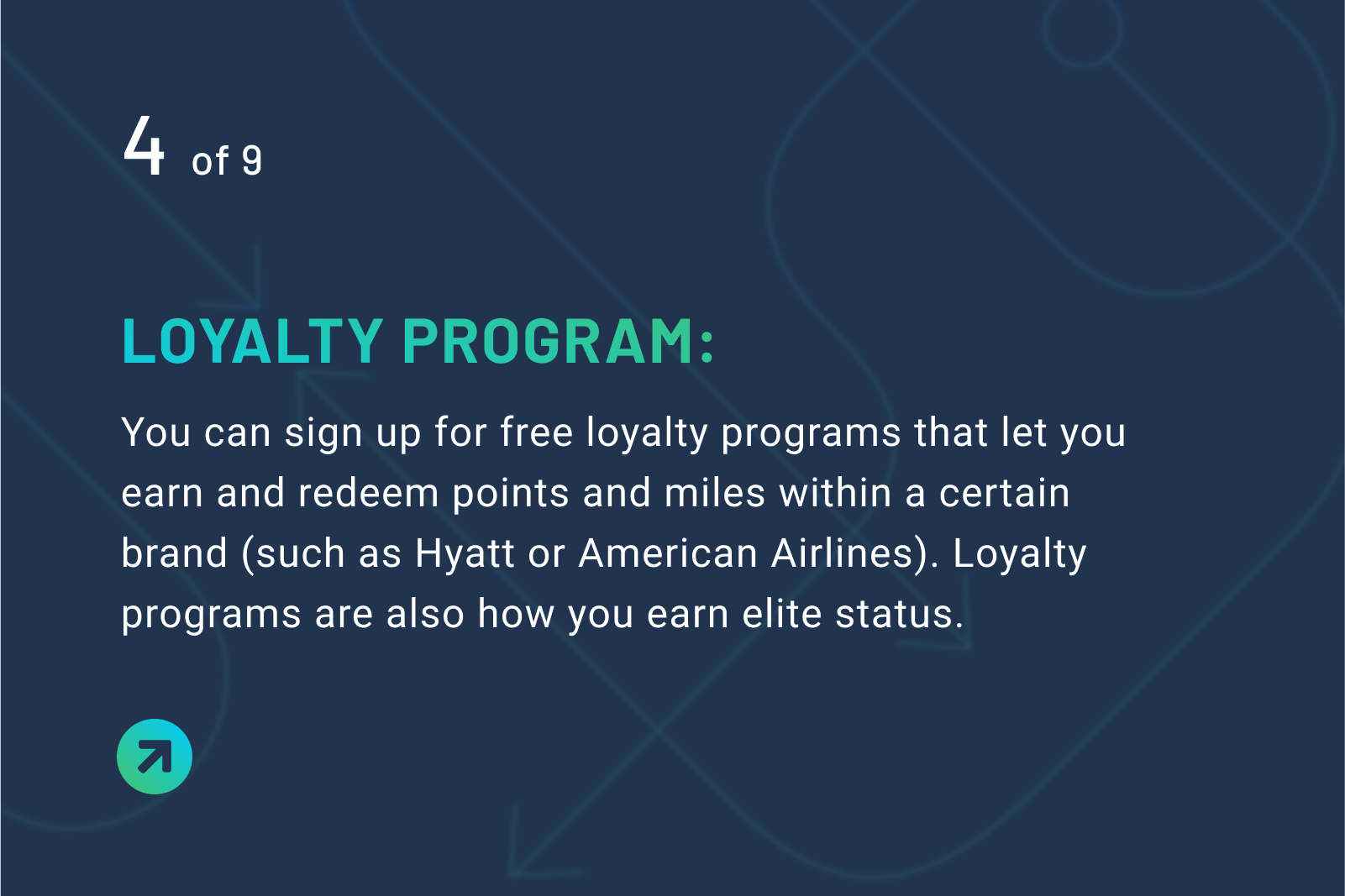
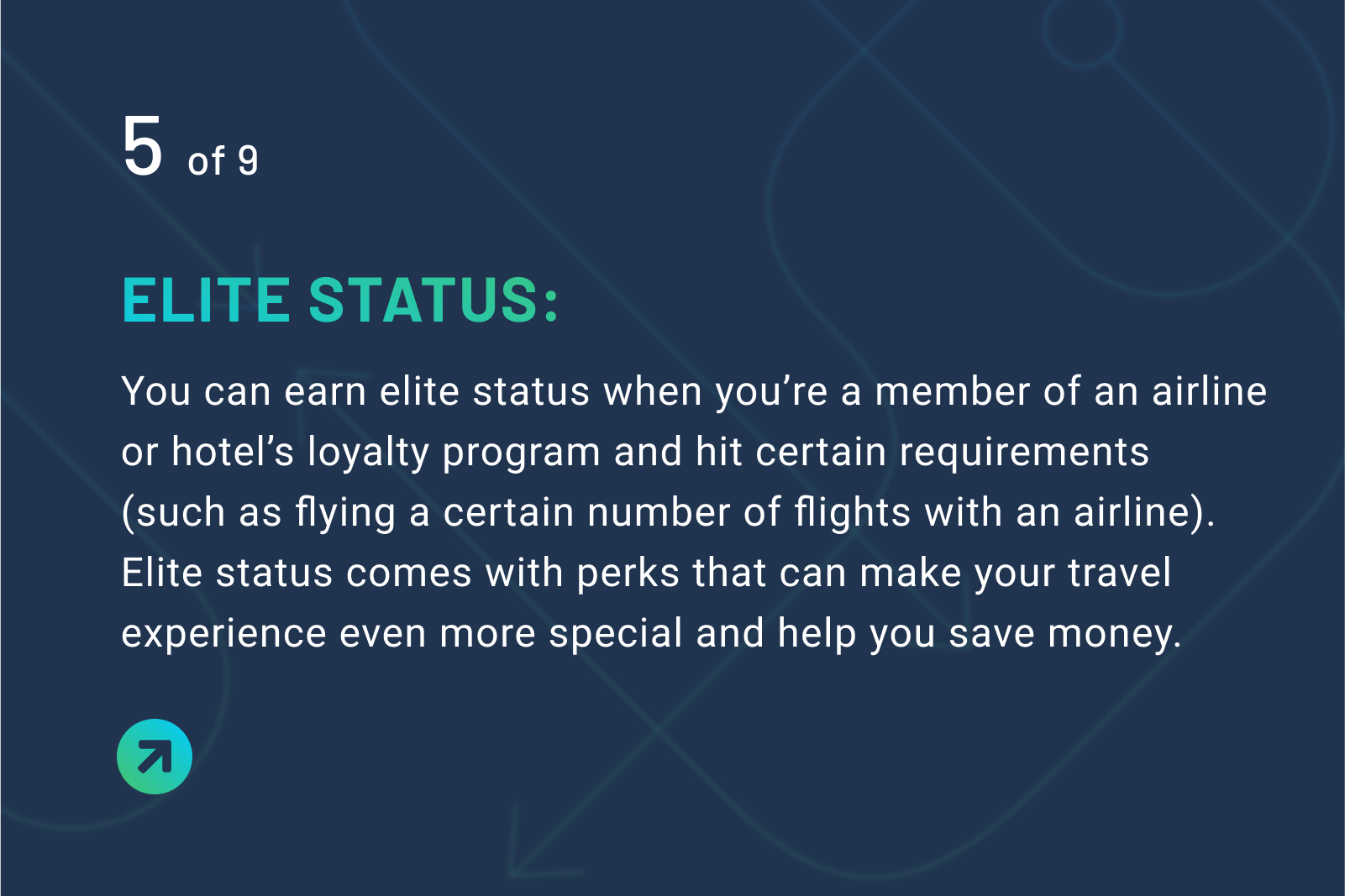
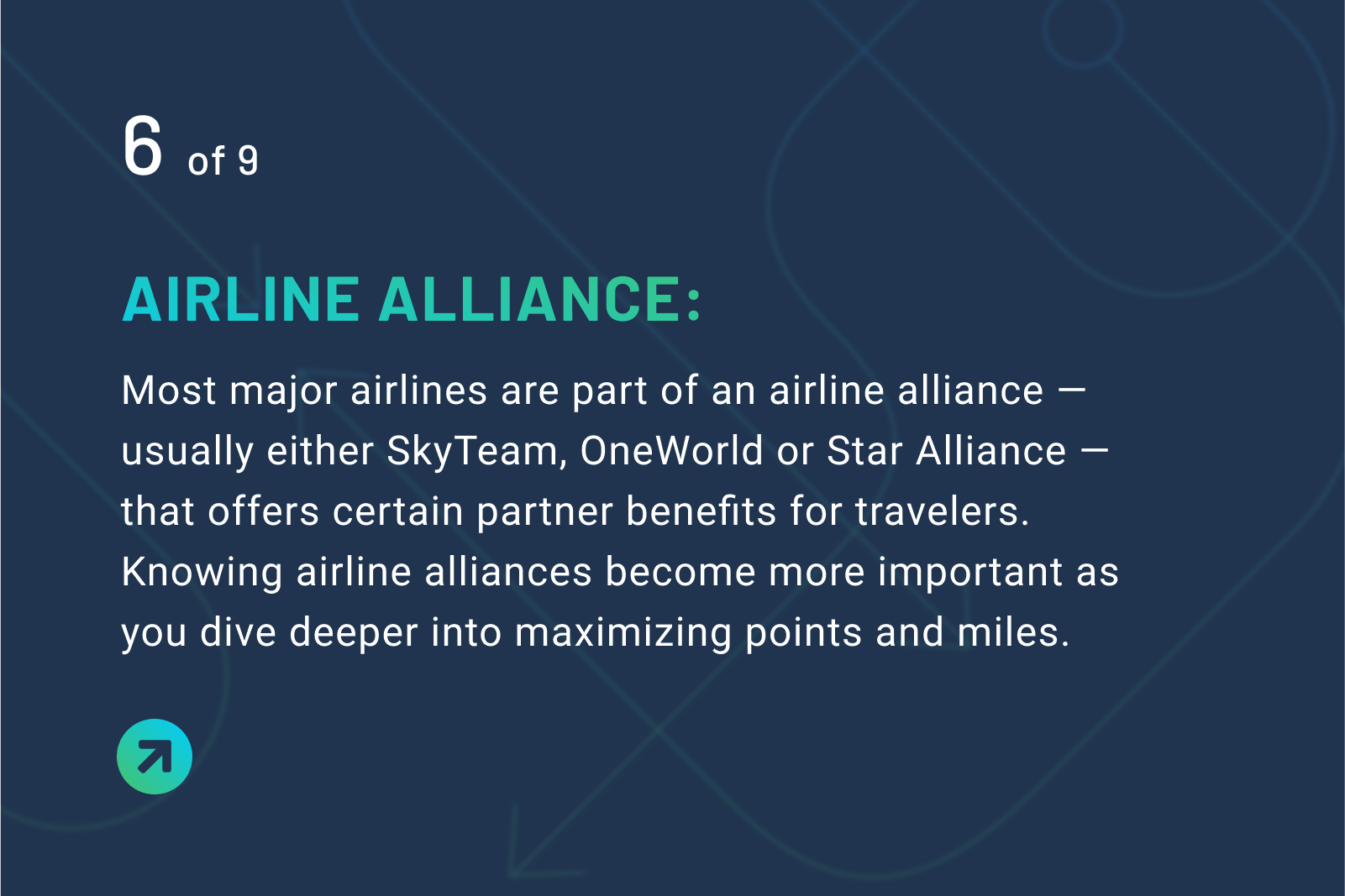
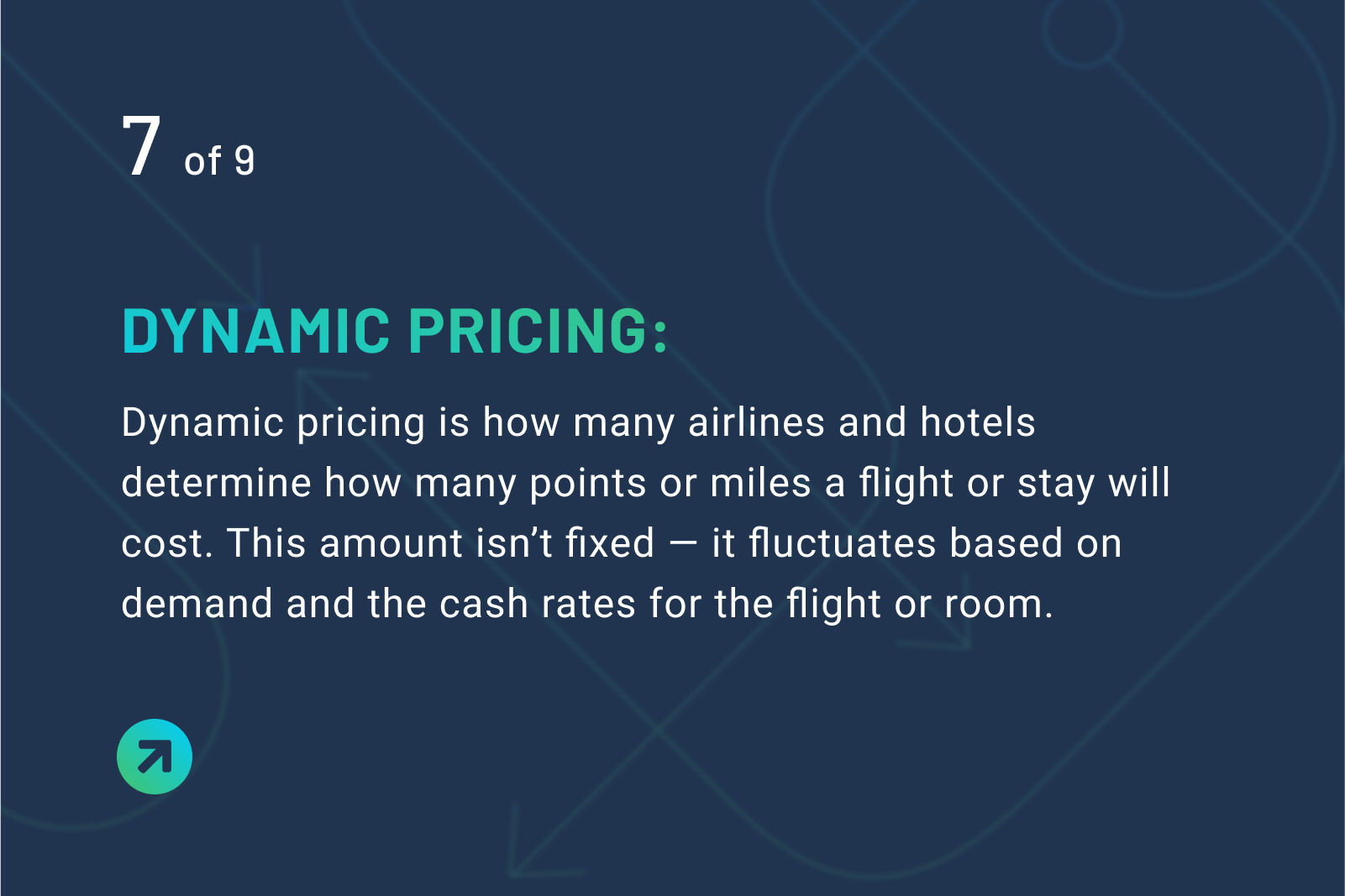
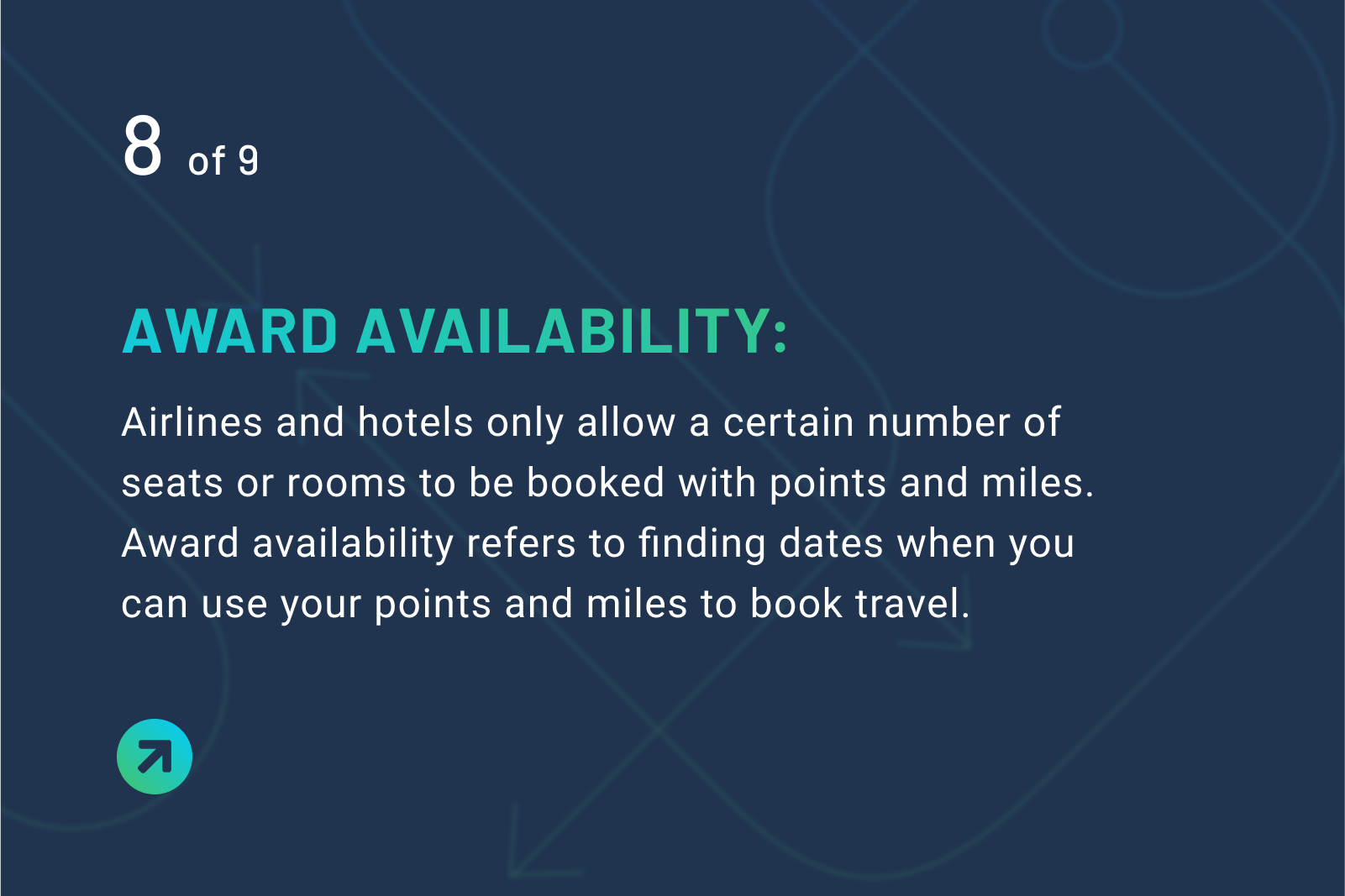
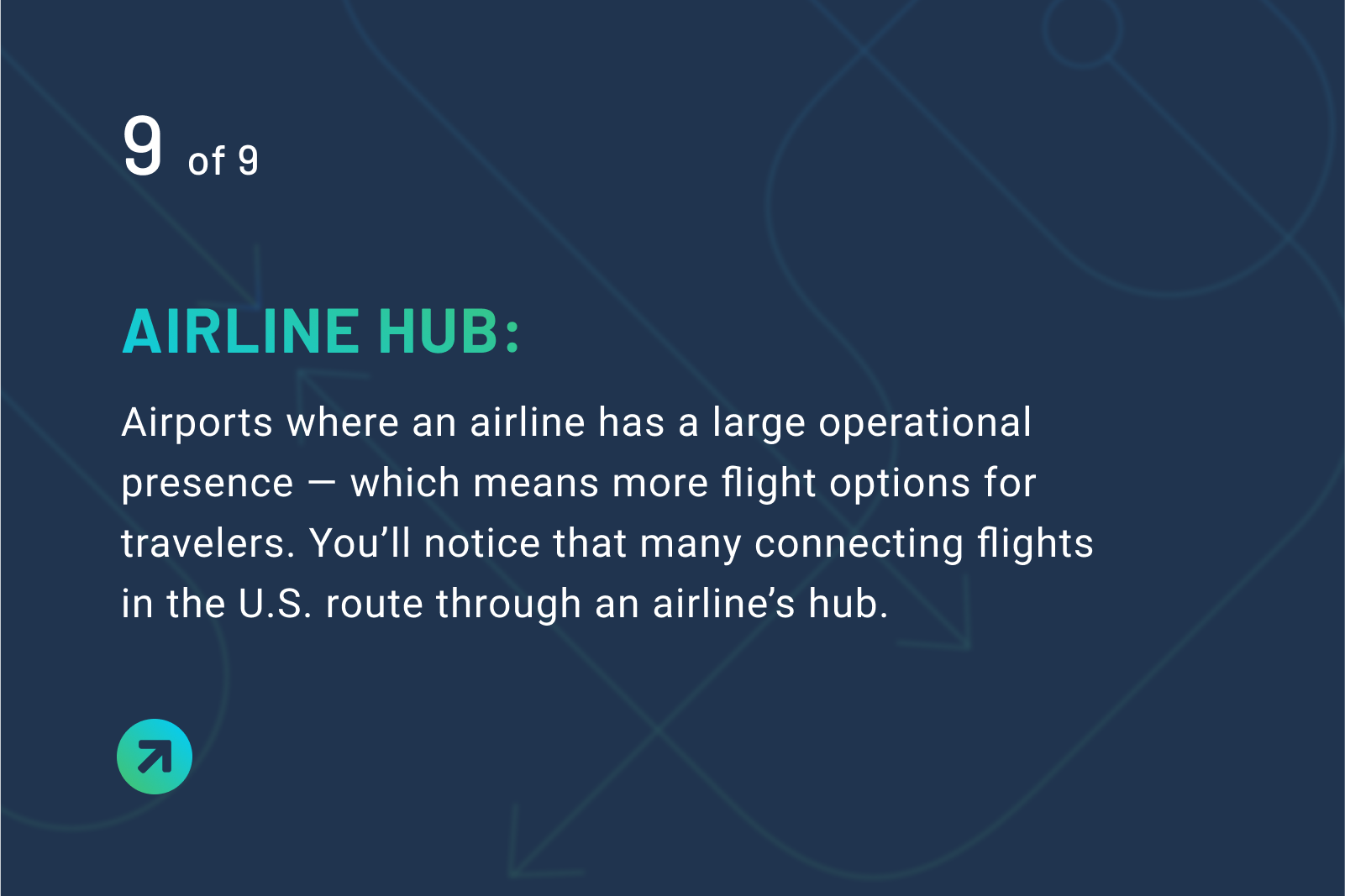
Now that you know the basic terms, it’s time to understand the players in the points and miles game. Let’s go through the top U.S. airlines, hotel chains and credit card issuers that you’ll want to know.
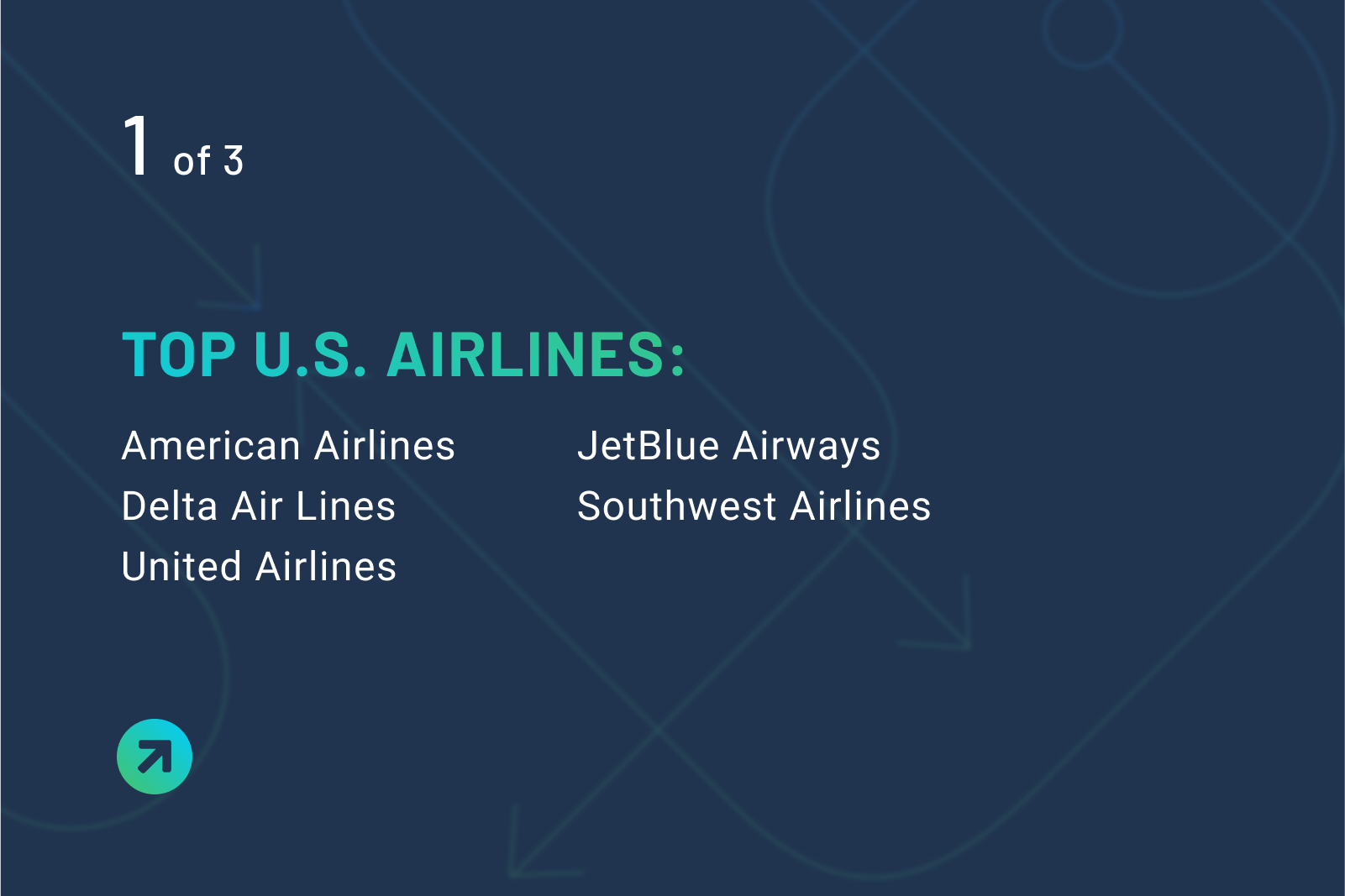

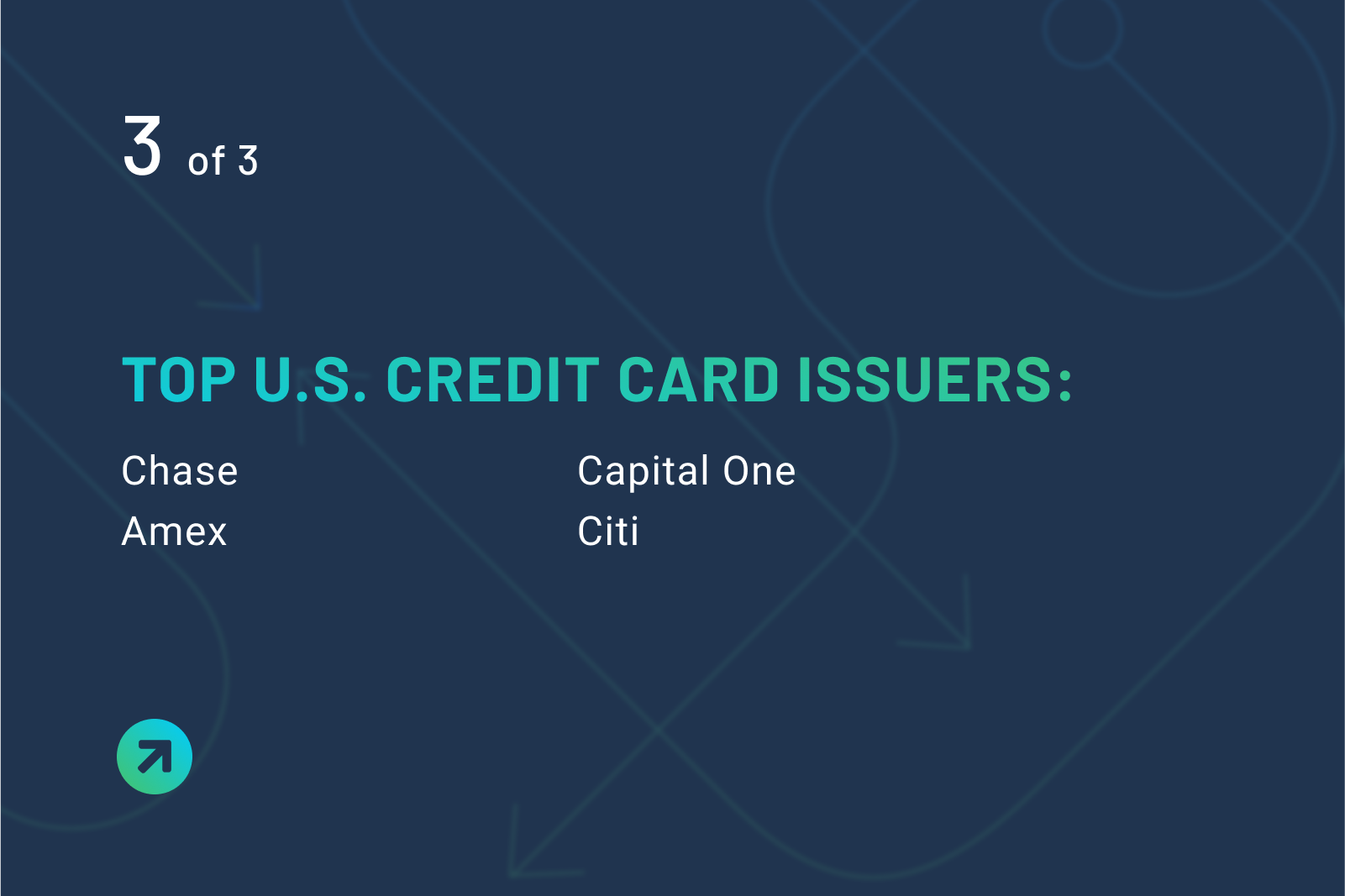
That was a basic rundown of the main terms you’ll need to know to get started on your points and miles journey, but there’s always more you can learn. If you want to keep going, here’s an A-to-Z breakdown of the travel terms you need to know to make the most of the points and miles game with TPG’s Power Pointers on YouTube.
What are points and miles worth?
Now that you’ve gotten a hang of the key terms, you may be wondering what value you can get from points and miles. The truth is, most loyalty program currencies are not worth a set amount. The upside to that is it’s possible to redeem points and miles for a lot of value, but the downside is that it can be confusing to figure out when you’re getting the best deal.
TPG publishes our own points and miles valuations each month that help our readers know how much we value certain airline, hotel and credit card points and miles. We also provide a calculator so you can compare the value of using miles or points versus paying cash for any specific trip you have your eye on.
Our valuations are our assessment of how much we value each loyalty program currency, though how much value you’ll get from your points and miles depends on how you use them. For example, we currently value Chase Ultimate Rewards points and American Express Membership Rewards points at 2 cents per point (which is higher than most other loyalty program currencies, such as American Airlines AAdvantage miles or Marriott Bonvoy points). However, that doesn’t mean you’re guaranteed 2 cents per point in value when you use those rewards.
You could redeem your Chase points for anywhere between 1 and 1.5 cents each through the Chase travel portal (depending on which credit cards from Chase you have in your wallet), or you could transfer American Express points to an airline for business-class flights and end up getting 2.8 cents per point in value.
We’ll outline some of the ways you can redeem your points later in this guide, and you can keep up with our latest articles to learn more about how TPG staffers and readers are using their points and miles for their own travels.
What can I do with points and miles?
This probably sounds extreme, but credit card rewards, hotel points and airline miles really can change your life. Points and miles (and a little knowledge) can open the door to flights, suites and trips you never dreamed possible.
For some, that means taking an international flight in a lie-flat seat where you can sip Champagne in the sky while on your way to an overwater villa on some far-flung island. That’s a 100% possible and realistic goal — and we can show you how to make it happen.

However, that’s not all points and miles can do. You can also use your points and miles to go to Disney World, travel across Europe, jet off to Hawaii, visit New York City, stay at a hotel near a national park or take a vacation with your kids and family.
And while travel usually provides the biggest return for your points, you can often use them for other things, too, like covering the cost of gift cards, trading them for statement credits or cash back on your credit cards or even treating yourself to dinner or merchandise.
The return you get for your points does vary based on how you use them — and we can help you decide whether to use points or cash — but there are no inherently good or bad ways to use rewards as long as they are unlocking something you want.
Real-world TPG reader success stories
It’s OK if you are not sure what you’ll one day want to do with your points and miles. Here are some real-world examples of what some other real TPG community members did with theirs:
- Saving $23,000 on a girls trip to Europe
- Taking the family to Kauai, Hawaii, for 60,000 miles
- Using points for a honeymoon through Paris and Prague
If you’d rather watch how this all works, here’s one example showing how some TPG readers can use their points and miles to get to Costa Rica.
First-timer series from TPG staffers
Everyone was new to this at one point — even those who work at TPG — so here are some getting started guides from TPG writers who were once new to this way of traveling:
- Is the The Platinum Card® from American Express good for a points and miles newbie?
- I’m new to all this — here’s why lounge access is turning out to be amazing
- Making my first big points and miles redemption
- How to get started with points and miles
How can I earn points and miles?
Contrary to popular belief, you don’t have to be on the road every week in order to rack up enough points and miles for an epic vacation. That’s because there are multiple ways you can earn rewards to use for travel without stepping foot on a plane.
Credit cards
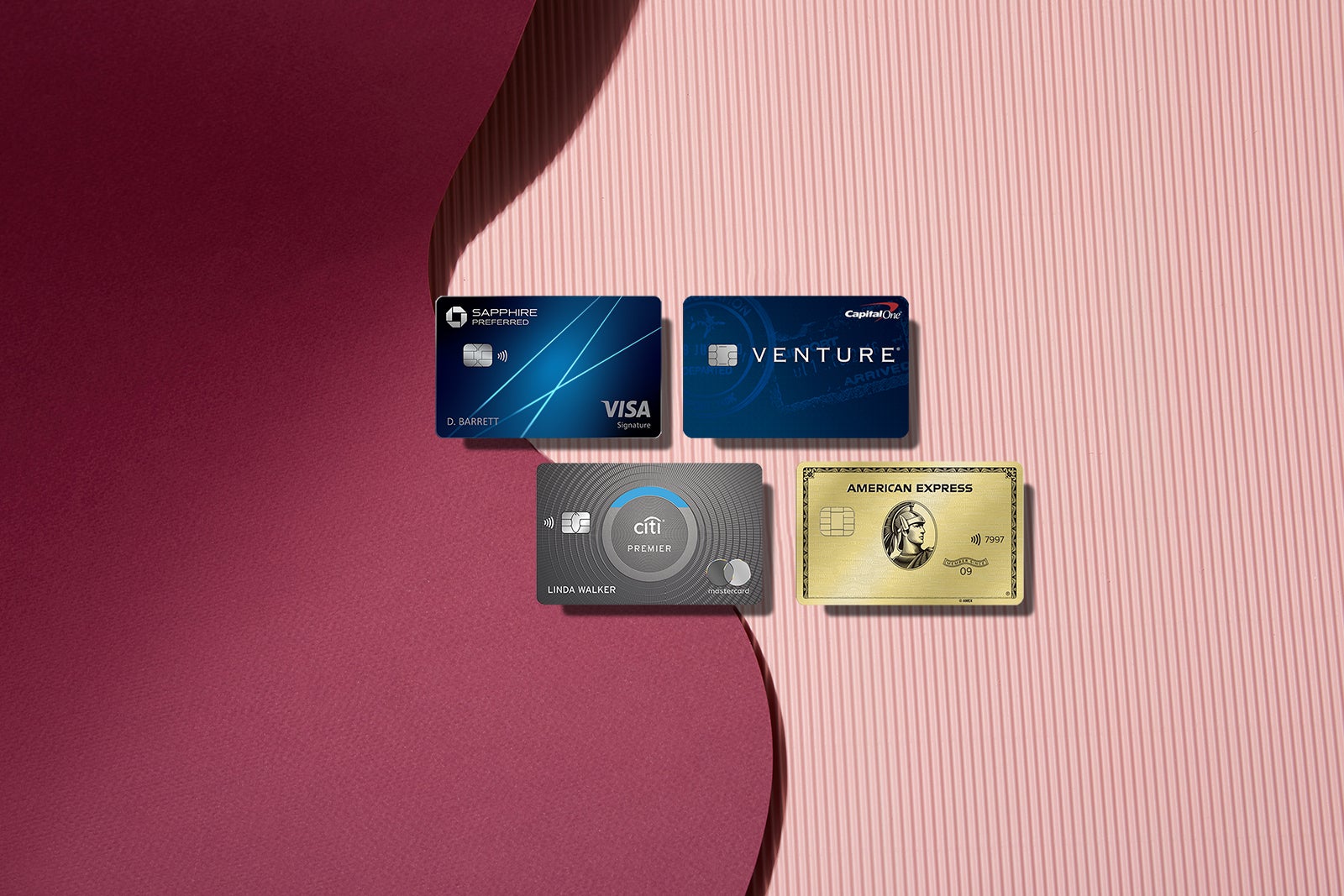
One of the easiest ways to earn points and miles is through spending on a credit card.
In fact, for lots of us, the majority of the miles we earn these days are not through flying — they come from using our credit cards. Not only can you receive a substantial head start from the welcome bonus you can earn when you first get a card (depending on the card, it can be worth $1,000 or more in travel!), but you can also accrue points by charging everyday purchases (think: grocery runs, car insurance payments, doctors visits, cellphone bills, gas fill-ups and more) to your cards.
We recommend using a rewards-earning credit card for as many purchases as possible, as they’ll do more than give you valuable rewards. These cards also offer more consumer fraud protections than debit cards. Plus, they help you build your credit score. Just make sure you’re paying off your bill every month to avoid interest charges. We’ll get back to this point in more depth shortly.
If this is new to you and you’re just getting started with credit cards, here are a few guides to check out from TPG experts:
- Why a credit card is a smarter choice than a debit card
- How I treat credit cards like debit cards: The updated envelope system
- Lessons I’d tell my younger self about credit cards
- From credit newbie to credit wizard: Here’s a 5-year strategy for rewards cards
- How to choose the right credit card for you
Travel
While traveling is far from the only way to earn points and miles, it’s a tried-and-true way to rack up rewards. Just about every time you pay for a flight or hotel stay with a brand you have a free loyalty account with, you’ll earn points or miles that you can use toward future travel.
The more you travel, the easier it is to earn elite status with certain airlines and hotel brands. Once you qualify for elite status, you can earn points and miles at an accelerated rate.
To start your journey toward earning elite status, make sure you sign up for the loyalty programs that you will use while away from home. These include ones linked to hotels and airlines, plus other travel brands.
Here are a few guides about some of the most popular programs to get you started so you don’t accidentally miss out on any points, miles and awards while on your next trip:
Popular airline loyalty programs:
- American Airlines AAdvantage: How to earn miles in the American Airlines AAdvantage program.
- Delta SkyMiles: How to earn miles in the Delta SkyMiles program.
- JetBlue TrueBlue: How to earn points in the JetBlue TrueBlue program.
- Southwest Rapid Rewards: How to earn points in the Southwest Rapid Rewards program.
- United MileagePlus: How to earn miles in the United MileagePlus program.
Popular hotel loyalty programs:
- World of Hyatt: How to earn World of Hyatt points.
- Hilton Honors: How to earn Hilton Honors points.
- IHG One Rewards: How to earn IHG One Rewards points.
- Marriott Bonvoy: How to earn Marriott Bonvoy points.
Shopping portals
You can earn plenty of travel rewards without actually traveling. One way you can rack up rewards without leaving home is to be strategic about how you shop online. You can earn points and miles (even without a rewards credit card) just by clicking through a shopping portal.
Many major airlines, hotel chains and card issuers have shopping portals where you can earn additional rewards for your online spending. You can also find shopping portals that earn cash back if you’re more interested in earning those types of rewards right now.
The best part? If you do have a credit card, you can double dip and earn points and miles through both your credit card and a shopping portal for the same purchase.
Here’s how to start learning about earning points and miles while shopping online:
- How to maximize shopping portals for your online purchases
- These are the online shopping portals
- Earn even more rewards by adding this one small step to your online shopping routine
- The beginner’s guide to airline shopping portals
- Your guide to online shopping portal browser extensions
Other ways to earn points and miles
Credit cards, travel and shopping portals are the easiest ways to earn points and miles, but there are other options, too. You can earn points and miles from dining programs while eating at restaurants, using ride-hailing services like Uber and Lyft, and even taking surveys at home.
- Guide to airline and hotel dining rewards programs
- How to earn points, miles and cash back while doing your taxes
- How to earn points and miles for completing surveys
- How to credit miles to a partner airline program
- The easy way to earn bonus points every time you take Lyft
- Earn Marriott points when using Uber Eats
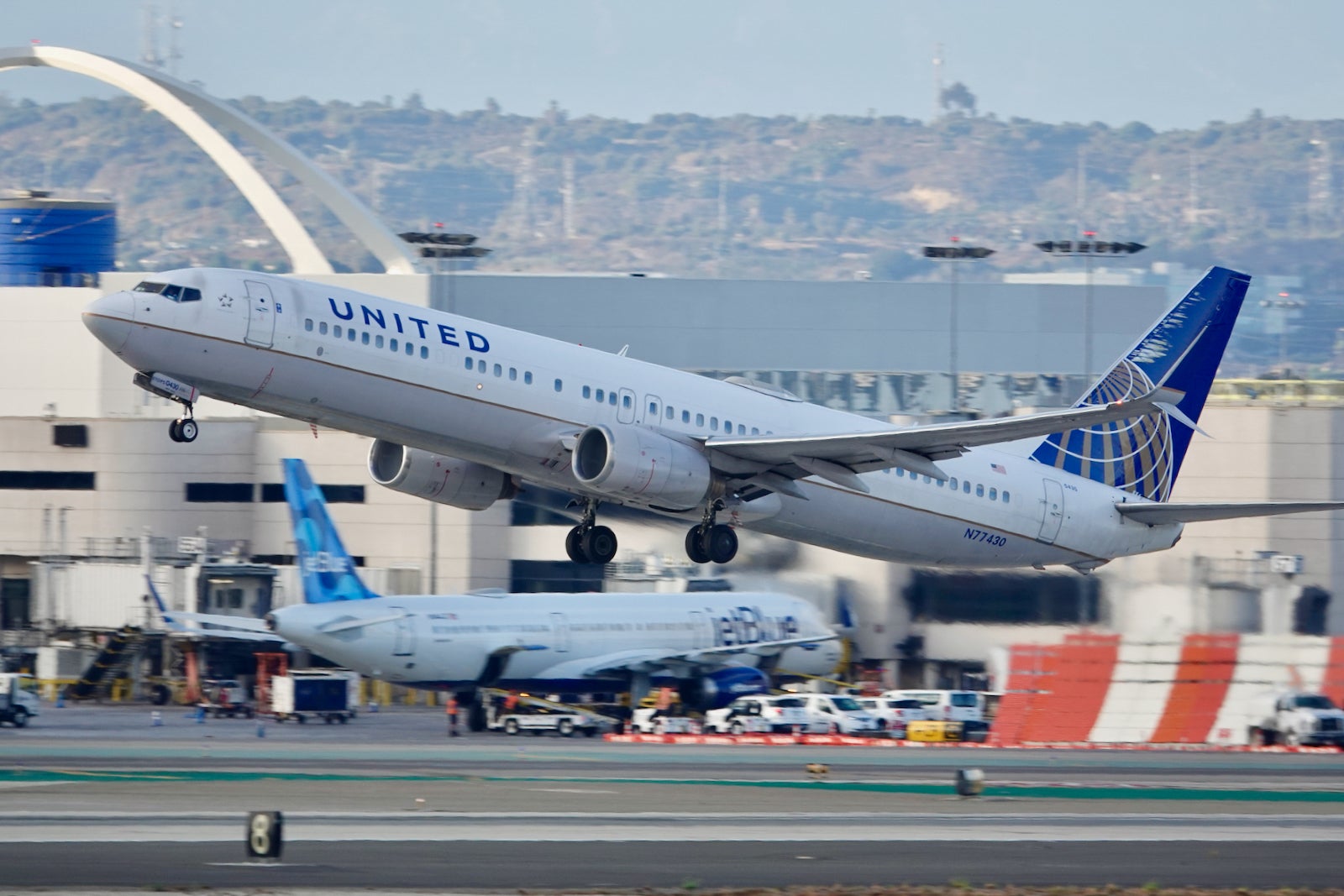
Which credit card should I start with?
As previously mentioned, rewards-earning credit cards are not the only way to earn points and miles, but they are one of the easiest ways to ramp up your earning potential in a hurry. This is especially true when that first big welcome bonus gets deposited in your account and you suddenly go from having zero to tens (or hundreds) of thousands of points ready to use for trips.
What to know before getting your first card
Before adding a rewards credit card to your wallet, there are some important things to keep in mind.
First, know that these credit cards are not for those who expect to need to carry debt on the card. If you need to park a large purchase somewhere for a while, go for a card with a low or even 0% interest rate.
Credit card points will absolutely cost you real money in the end if you are paying interest or buying more than you otherwise would to earn them. So, you’ll want to make sure you pay off your balance each month and enjoy the points and purchase protections you get by shifting your everyday purchases to your shiny new card. Start slow by shifting some of your everyday expenses or recurring monthly expenses to cards that you know you will easily pay off each month.
Remember, too, that you need to have pretty decent credit to get approved for some of the more premium rewards credit cards. If you are just starting to build or rebuild your credit, consider these good “starter” credit cards.
Choosing your first credit card
While every situation is different, we typically recommend that those who are truly brand new to points and miles start with a credit card that comes with a good welcome bonus, has an annual fee of around $100 or less and has a variety of options for when it comes time to redeem your points.
If you want some specific suggestions, the Chase Sapphire Preferred Card is one of our most recommended rewards credit cards to start with.
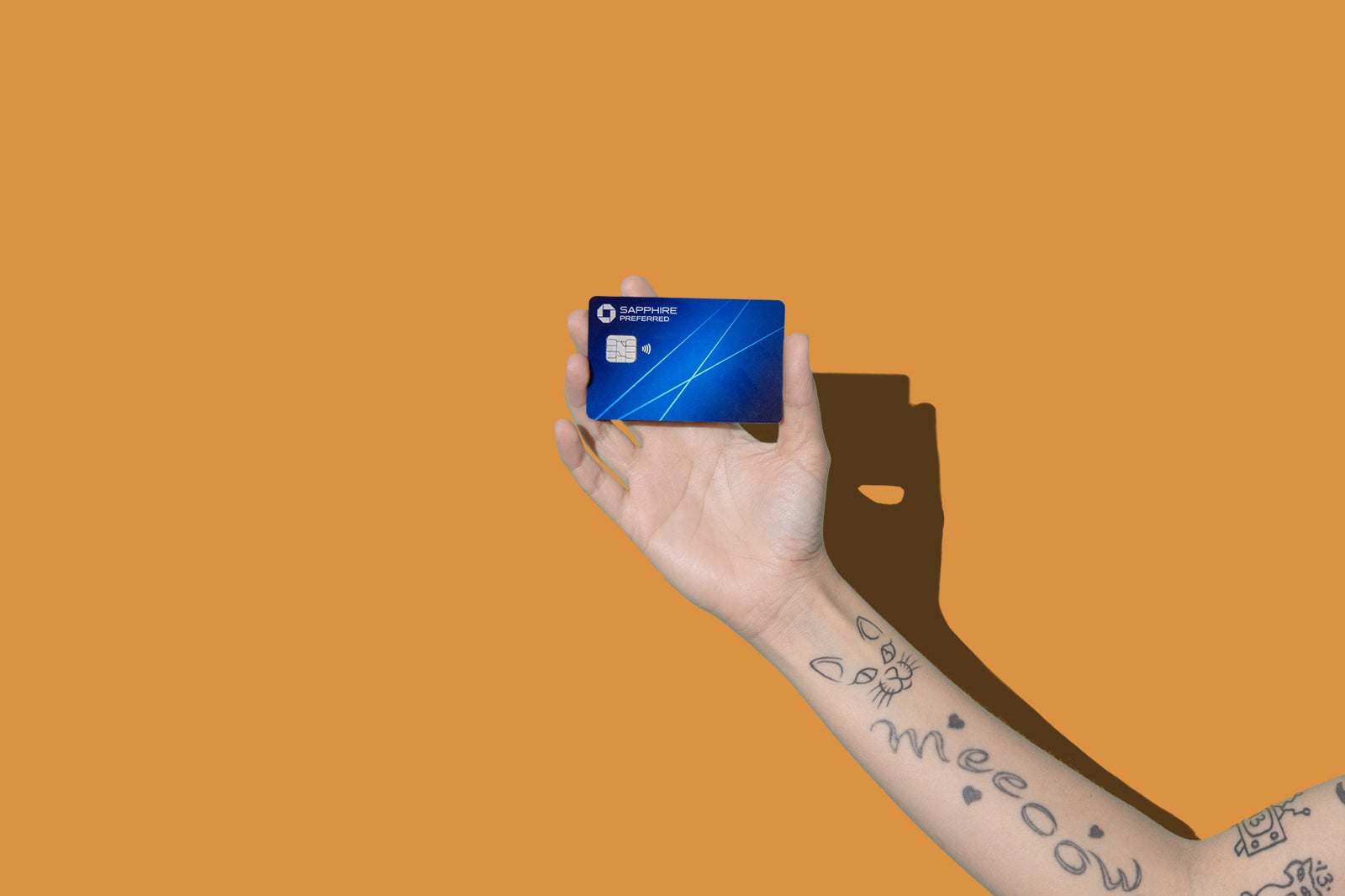
This is one of our favorite cards for people to start with because it has a sub-$100 annual fee and earns 3 points per dollar spent on dining, select streaming services and online grocery orders, plus 2 points per dollar spent on travel and 1 point for most other charges. Those points can be used at 1.25 cents each toward travel or transferred to many different travel partners, such as Hyatt, United Airlines, Southwest Airlines, British Airways and Marriott, among others.
Official application link: Chase Sapphire Preferred Card with a sign-up bonus of 60,000 bonus points after you spend $4,000 within the first three months of account opening.
The Capital One Venture Rewards Credit Card is another great choice for your first rewards card. It also has an annual fee below $100 and a simple earning structure of 2 miles per dollar spent on all purchases.

With this card, the miles you earn can be used at a value of 1 cent each for travel or transferred to one of Capital One’s hotel and airline partners, such as British Airways’ Avios, Air Canada’s Aeroplan and Singapore Airlines’ KrisFlyer programs. By having this card, you also get a couple of annual passes to visit the Capital One airport lounges, which we’re big fans of.
Official application link: Capital One Venture Rewards Credit Card with a sign-up bonus of 75,000 bonus miles after you spend $4,000 within the first three months of account opening.
Don’t worry if you are not ready to get a new rewards credit card just yet, as it’s not a required component of starting to earn points and miles — though it certainly does help. When you’re ready, here’s more information on finding the right card for you:
- How to choose the best credit card
- These are the best travel credit cards available right now
- Best credit cards for college students
- The best credit cards if you want elite status
- Best credit cards if you like to eat out
- Should you get a credit card with an annual fee?
- See if you are targeted for a better credit card offer with CardMatch
How can I redeem points and miles?
We have looked at what points and miles are and how to earn them. Now let’s get to the good part: how you’ll be able to put them to use.
You don’t have to start with a big, fancy redemption. In fact, you don’t have to use them anytime soon, especially if you are just starting your earning journey. But, you’re going to be smarter about earning rewards if you have an idea of how you may use them down the road.
We promise that as soon as you make even the smallest redemption, that rush of adrenaline will be enough to propel you to learn even more and go bigger next time — if that’s your goal.
Redeeming airline miles for flights
While there are other options, you are usually best off redeeming airline miles for flights.
When using miles for flights, know that they can cover a flight operated by the airline you earned your miles with or by one of its partners. For example, if you earned miles with United MileagePlus, you could redeem them to fly on a United-operated flight or on one tied to a United partner, such as Lufthansa, Singapore Airlines, ANA or Aer Lingus, to name a few.

At the most basic level, you simply log into the airline frequent flyer program where you have miles, click “redeem miles” and run a search like you would for a paid ticket to redeem your earnings.
While years ago you often had to deal with award seats being sold out or not available, that’s not usually the case these days. Increasingly, airlines price their award seats in a way that is at least loosely tied to the cash price when it comes to their own planes. That means the price will vary (and can be high during peak times), but seats are often available.
The tips and tricks to really get the most out of your airline miles vary by program. Here are a few guides to get you started:
- How to redeem your United MileagePlus miles
- How to redeem your American Airlines AAdvantage miles
- How to redeem Delta SkyMiles
- How to use Southwest Rapid Rewards points
- How to redeem Alaska Airlines miles
And if you want to jump-start your learnings, here are some mistakes to avoid when redeeming your airline miles and a few of our favorite uses of airline miles.
Redeeming hotel points for stays
Like airline miles, your hotel points are typically the most valuable when used to book hotel stays with the chain you earned the points with. While hotels don’t typically have partners available at the same scale as the airlines, you do usually have a lot of options to book with various brands within that program.
For example, your Marriott Bonvoy points can get you award stays at everything from a fancy St. Regis or Ritz-Carlton property all the way down to a basic but conveniently located SpringHill Suites or Fairfield Inn thanks to all of these brands being part of the Marriott family.

Some hotel programs still use award charts that let you know how many points a night will cost in advance, assuming a room the hotel defines as standard is available. But increasingly, hotel programs are charging you award rates that vary nightly, just like cash rates. This can make it easier to book a room but harder to know in advance how many points it will cost.
Here’s how this all works based on the hotel program:
- How to use Marriott Bonvoy points
- How to use Hilton Honors points
- How to use World of Hyatt points
- How to use IHG One Rewards points
Once you accrue enough points to cover a free night, know that some hotel programs, such as World of Hyatt and Hilton Honors, have an added perk of redeeming points. Instead of only receiving the benefit of a room paid for with points, you’ll also have resort fees waived on stays booked solely with hotel points. That can save you $50 (or more) per night at some properties. Know, though, that Marriott Bonvoy does not waive resort fees, even on award stays.
To jump ahead to expert-level redemptions, check out these stories about mistakes to avoid when redeeming hotel points and how to get the best value from your hotel points.

Redeeming credit card points and miles for travel
Airline miles and hotel points are fantastic tools, but there are some massive advantages to focusing most of your effort on earning more flexible credit card points and miles.
Credit card-based rewards programs include:
- Chase Ultimate Rewards.
- American Express Membership Rewards.
- Capital One Travel.
- Bilt Rewards.
- Citi ThankYou Rewards.
These can be even more valuable than earning points or miles tied to specific programs like United or American Airlines because you have more options when it comes time to cash in these more flexible points and miles. Usually, credit card earnings can be used for travel in one of three main ways:
- The simplest option is to use the points to book travel via the credit card’s travel site (which usually works similarly to Expedia). Typically, the points are worth a fixed amount when redeemed this way, ranging from 1 to 1.5 cents per point, depending on the card and program.
- With some programs, like Capital One, you can book travel on certain cards like you normally would (directly with the travel provider) and then use the rewards to offset the charge on the card later. For example, you could pay for a $150 hotel room directly with the property and then a few weeks later, you could log in to your account and use 15,000 Capital One miles to offset the charge.
- We saved what may be the best for last. You can transfer your credit card points to one of the program’s partner programs, such as United MileagePlus or World of Hyatt, depending on the program. This is how points and miles pros really get a lot of value from their rewards.
While using points to book travel via a site like the Chase travel portal may be the easiest way to redeem your credit card points or miles, you can sometimes get more value per point than just a fixed value by transferring them to a hotel or airline program once you find the reward you want.
You can use the TPG awards versus cash calculator to help you decode some of the math behind the best way to redeem your points and miles.
If you want a little break from reading, here is a TPG video that will tell you more about valuable transferable points. While you’re there, you can subscribe to our YouTube channel so you don’t miss a thing.
What’s next? TPG’s ‘getting started’ checklist
Once you nail down the basics of points and miles, the world is your oyster to unlock.
You can travel to amazing destinations, save money on that yearly trip home around the holidays, ditch economy seats in favor of long-haul flights in business class and so much more.
If you want to get just one rewards-earning credit card and use those points at about 1 cent each to cover travel expenses, you’re doing great and there’s nothing at all wrong with that approach. But the learning doesn’t have to stop here. The more you know about points and miles, the better you can maximize your travels (and save even more money).
To that end, we’ve created a checklist you can use to guide your way through the beginning of the points and miles journey.
Step 1: Pick your first redemption goal
The absolute best way to learn the points and miles game is by earning and redeeming points. Now that you know the basics, it’s time to pick a redemption goal to aspire to.
Maybe it’s racking up enough points to pay for your in-laws to stay at a hotel over the holidays. Or, maybe it’s earning enough miles to book flights to Disney World. Perhaps you want to visit Paris or decide to go all in and save up points to visit the Maldives. The idea is to pick an attainable goal to work toward and inspire you to continue learning about points and miles.
Step 2: Sign up for every major loyalty program
Next, sign up for all of the loyalty programs affiliated with the airlines and hotels you fly and stay with. Signing up for loyalty programs is free, so there’s no harm in joining them. Doing so will help you earn rewards every time you travel.
To sign up for the major U.S. airline frequent flyer programs, visit the following sites:
And for the major hotel loyalty programs, you can sign up here:
Step 3: Apply for your first rewards credit card
When you’re ready, getting that first rewards credit card is a great way to jumpstart your points and miles earnings. If you hit your sign-up bonus, use your card to pay for everyday purchases, making sure to pay it off in full each month. Even just one card in your wallet can make a big impact on your points and miles balance.
Check out this guide for all you need to know about how to actually apply for a credit card.
Step 4: Join the TPG community
At TPG, a large part of our mission is to make travel more accessible to everyone using points and miles. As you start earning and redeeming points and miles for travel, make sure you’re following TPG for all the latest information to help you upgrade your travel experiences, grow your knowledge and (most importantly) meet your travel goals.
Follow TPG on social media and join a community of fellow travel lovers.
Step 5: Sign up for TPG newsletters
Never miss out on TPG news and advice from our experts by signing up for one of our free newsletters.
- You can sign up for our free daily newsletter for the latest travel and credit card news and advice.
- If you’re a budding AvGeek searching for insights about the aviation industry, sign up for our biweekly aviation newsletter.
- Cruise enthusiasts can get the latest information about how to make the most of cruises in our biweekly newsletter from Gene Sloan.
- Learn about the travel trends TPG is looking at in our weekly newsletter from TPG founder, Brian Kelly.
Step 6: Download the TPG app
You can also check out our TPG tools to help you figure out the best ways to use your points and miles based on your goals and interests.
Use the free TPG App to help you curate your news feed, spend smarter on everyday expenses and track your progress toward a dream trip redemption.
Step 7: Tell us all about your first redemption
Making that first travel redemption — no matter how large or small — is a major accomplishment, and we want to help you celebrate your first foray into the world of points and miles.
Tag us in photos of you enjoying your redemption, email us at tips@thepointsguy.com to share your redemption success stories and don’t hesitate to reach out on any of our platforms to show us how TPG is helping you earn and burn points and miles. We’ll be with you every step of your journey.
